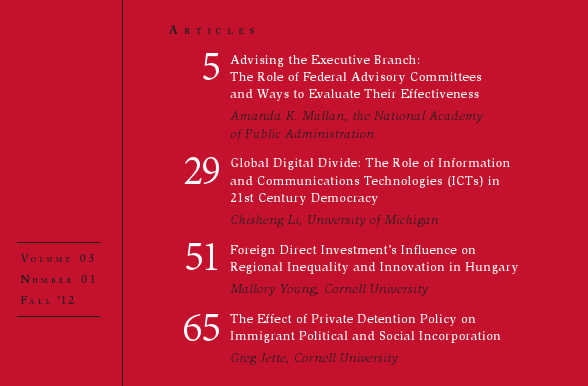Image courtesy : CommonDreams.orgLast week, documentary filmmaker documentary filmmaker Finn Nørgaard, was killed in Denmark. Over 200 rounds from an automatic machine gun were fired into a cafe where he was attending a talk entitled, “Art, Blasphemy and Freedom of Expression.” Lars Vilks, a cartoonist who once published a caricature of the prophet Mohammed as a dog, and Francois Zimeray, the ambassador of France to Denmark and the French Ambassador-at-large for Human Rights, were also present. Later, that same day, the same assailant killed Dan Muzan, a Jewish man, in front of a synagogue, hours before opening fire on the art exhibit. This incident worried many, as the January Charlie Hebdo and Kosher grocery store attacks that killed that killed 20 and injured 22 in Paris were fresh in the minds of Europeans.
The targeting of Vilks and Charlie Hebdo, and dozens of other terrorist acts in the last decade, are seen as attempts to impose specific worldviews upon Europe, including a restriction of free speech to make slander of the prophet Mohammed lethal, or at least dangerous to anyone who might dare offend the Prophet. Vilks is not the first to come under fire in Northern Europe. In 2013, Lars Hedegaard opened his front door in Copenhagen, only to narrowly miss a bullet aimed at his head by a 25 year-old gunman. In 2007, Charlie Hebdo republished Kurt Westergaard’s infamous “turban bomb” caricature of Mohammed, after which the magazine was sued for incitement. That case was won on appeal. That particular caricature earned widespread condemnation in the Middle East, and has been called the worst international incident for Denmark since the Second World War by its prime minister.
France has already had a fraught relationship with what may be called a “free press” and access to public forums to express “free speech.” Specifically, France has outlawed hate speech, as have many other other European countries, and has criminalized “incitement” of terrorist activity. The criminalization of certain kinds of speech has weighed the net positive effect of selective censorship against the possibility of racial incitement, and racially charged criminal activity against minority groups, particularly on the basis of ethnic or cultural affiliation. Yet the reality of arrests made on the grounds of “incitement” is that they are often capricious and even reactionary, cutting short public conversations on sensitive issues such as race, religion, and culture.
One egregious example was the French police arresting a comedian, Dieudonné M’bala M’bala, on January 14th, for posting a message that read “Tonight, as far as I’m concerned, I feel like Charlie Coulibaly”, in reference to both Charlie Hebdo and Amedy Coulibaly, the man who shot a jogger, a police officer, and several hostages at the Kosher grocery store. Some 35 others stood accused of inciting racial hatred. The reaction to Dieudonné’s anti-Semitic remarks, which he later explained as having more to do with an expression of unity, rather than anti-Semitism, expose some of the the limits of free speech in France. Others charged under the same law are the famous sixties sex symbol Brigitte Bardot and Michel Houellebecq, a satirist who published an inflammatory what-if about a future where a member of the Muslim Brotherhood is elected President of La Republique.
The concept of laïcité, often interpreted as a hostile separation of religion and the French state, protects blasphemy and punishes “incitement”, often leading to rather capricious prosecution rather than the protection of minority groups. In no way is this exposition meant to condone the hatred of Muslims or Jews; neither is it a defense of racism. Rather, the idea that an arrest is made on the pretext of an ambiguous Facebook post, such as the one made by Dieudonné, is unfair to the principles of free expression in a democracy.
After this most recent shooting, Denmark is left with difficult choices regarding free speech and the values of a liberal democracy staunchly defended by its prime minister.
As a citizen of the Netherlands, this writer bristles when the Pope says there are limits to free speech, remembering the very public execution of a Dutch filmmaker, Theo van Gogh, great-grandnephew of the famous painter, by a fundamentalist who had proclaimed democracy incompatible with Islam. An influential figure such as Pope Francis expressing a belief that free speech must have its limitations only serves to tighten the constraints faced by liberal democracies terrorized by certain fundamentalist groups.
The efforts to make exceptions for those who are, by their own definition, incompatible with democratic values is a fruitless cause. Yet, in the last few years, the number of incidents between 2001 and 2015 have mushroomed five-fold, partially as the result of the post-Arab Spring conflicts, including the Syrian civil conflict, which has seen many European citizens join in, becoming radicalized in the process.
If terror is to have its agents provocateurs, meant to induce fear, then how shall the West respond, other than to reject Islam’s most radicalized groups? One solution has been to continue sponsoring certain counter-rebels, this or that “moderate” party, but Europe does not have a solution that could easily engage the alienated young men who appear responsible for these crimes. France in particular must reform its approach to integration of its burgeoning Muslim populations in the exurbs of Paris.

